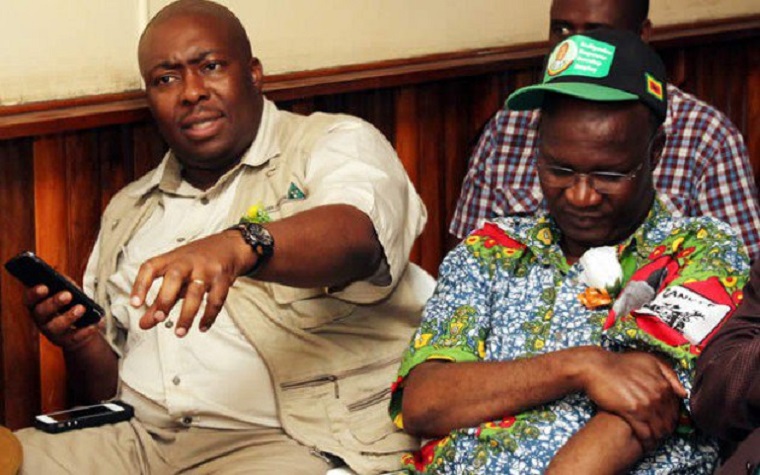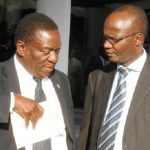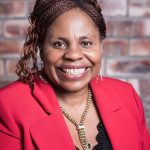After the Zanu PF 2014 Congress, Oppah Muchinguri drifted away and the “G4” became an unattractive label to the Daily News. As an act of creative genius, aware that there was an immediate fallout between Mnangagwa and his cronies on the one hand; and Kasukuwere, Zhuwao and me on the other hand, Stanley Gama opportunistically dusted off an article I wrote for the Sunday Mail in August 2011 on “Generation 40” (G40) as a demographic group across the political divide and used it as a replacement of “G4”.By that time, Mnangagwa’s cronies were affectionately calling each other “Lacoste”, while pretending to be clever and a half with claims that they were referring not to “Ngwena” known in political circles to be Mnangagwa’s nickname but to the green crocodile logo of a French merchandising company. Stanley Gama again seized on this and the Lacoste faction was born in the pages of the Daily News.
Thus 2015 saw the birth of two Zanu PF factions: G40 and Lacoste.While the rest is history, the fact is that this was a gross simplification and a catastrophic misrepresentation of national politics. It cannot be correct that Mnangagwa’s faction started in 2015 as Lacoste. It is also not correct that a new Zanu PF faction, called G40, emerged for the first time in 2015 and grew to be such a big deal that could only be stopped through a military coup in 2017.That is political nonsense. But this is a story for another time and place whose content, nuances and ramifications I unravel in the two books that I am working on.
With all due respect, and while I understand the source of the question, I must say that anyone with grounded information of what was happening, would not ask whether the so-called G40 was aware of the coup and, if they were aware, why they did not take pre-emptive action to nip it in the bud. From a factually point of view, this question should not arise.
There was no group or caucus that met as G40. The saga of G40 was in the newspapers and not in political reality. Many individuals labelled as G40 did not actually get along or trust each other or like each other or plan with each other. What is true is that anyone who did not support Mnangagwa’s succession plan or who was loyal to President Mugabe was labelled G40 as a matter of political stigmatisation. Otherwise, yes, some individuals seen as G40 were indeed aware of the coup, whose planning was long in coming. I certainly knew about the coup and I made representations about it to the politburo and President Mugabe, including in writing and by video documentation.I don’t think there is any substance in asking why individual members of cabinet or politburo, who knew about the military coup, did not do anything to stop the coup. Things don’t work like that in state politics. The real question that people should ask is whether President Mugabe knew about the coup and if he did, why he did not put in place measures to contain or pre-empt it. That is the real question that is blowing in the wind for an answer.
My view is that, although he got various reports from different sources about the planning of the coup, President Mugabe did not believe those reports because he trusted Mnangagwa and Chiwenga more than he trusted those who gave him the reports.It is my considered judgment that President Mugabe genuinely and truly believed that Mnangagwa and Chiwenga would never countenance toppling him from power. It is in this connection that to this day President Mugabe considers what Mnangagwa and Chiwenga did as the great betrayal. In fact, he considers it the utmost treachery.
Continued next page
(1160 VIEWS)


